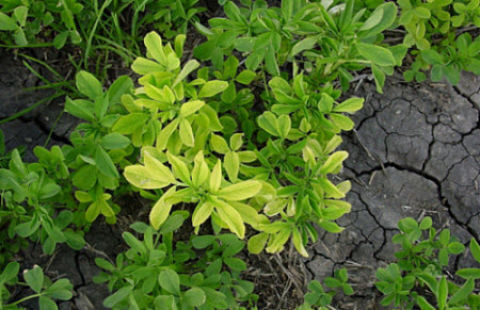Researchers study use of hay bales to prevent blue-green algae blooms
Researchers are studying the benefits of staking hay bales in Kansas waterways to prevent the growth of blue-green algae, a bacteria often caused by high levels of nitrogen or phosphorus in water that can be lethal to animals and humans. This summer and fall, researchers from Kansas State University and the Kansas Department of Health and Environment tested four waterways in northeast Kansas to determine whether the polyphenols released when the hay bales decay can prevent the growth of blue-green algae blooms. In this video, officials from K-State Research and Extension and KDHE explain the project’s background and what they’re learning so far. The project has also received help from the Shawnee County Parks and Recreation Department in Topeka, and the U.S. Army Corps of Engineers.



